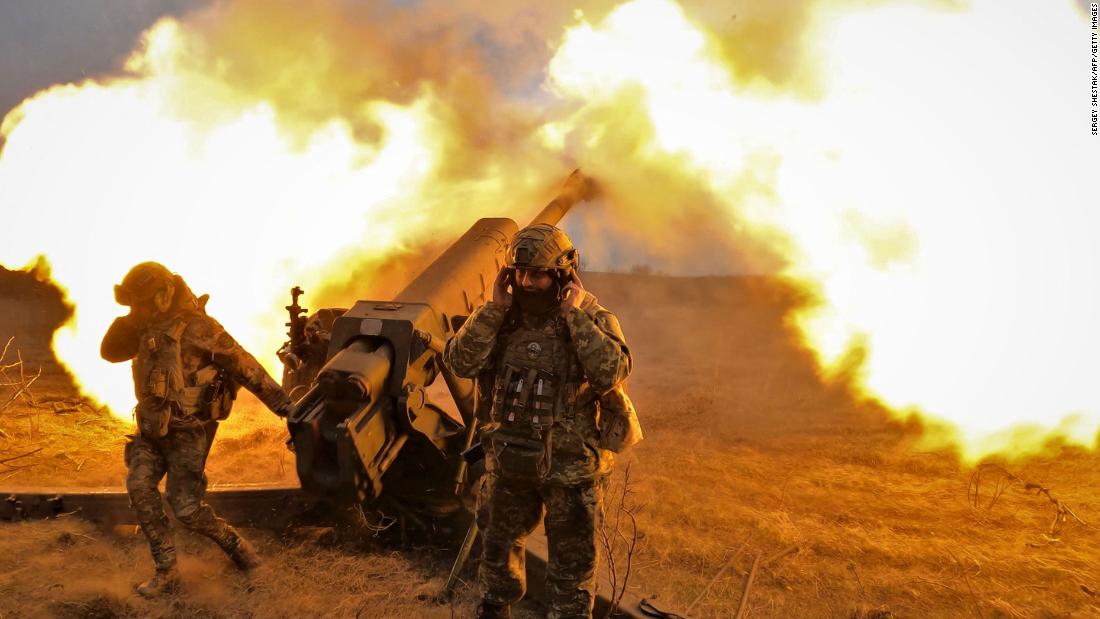
From CNN’s Tim Lister, Svitlana Vlasova and Olga Voitovych
Ukrainian officials say Russian forces have kept up their bombardments across Donetsk region, with more than 200 strikes against the Bakhmut area alone in the past 24 hours — but they claim the Russians are losing hundreds of men a day across the front lines.
The eastern city of Bakhmut remains “the focus of the enemy’s main attack,” according to Serhii Cherevatyi, the spokesman for the Eastern Grouping of the armed forces.
Cherevatyi said it was difficult to tell whether the intensity of Russian attacks around Bakhmut was waning because of factors such as weather, the rotation of units or reserves being brought forward by the Russians.
However, he said Russian tactics have remained the same with small tactical groups “trying to deplete our defenses.” He said soldiers from the Wagner mercenary group are near Bakhmut, with Russian troops providing reinforcements where necessary.
“We knock them out. In fact, there will be no more Wagner fighters in a little while if they continue the same dynamics,” Cherevatyi said.
Cherevatyi drew a distinction between the battle for Bakhmut and fighting elsewhere. He said further north, Wagner was less in evidence around Lyman and Kupyansk, where regular Russian forces, supported by the Luhansk militia, had made more than 400 attacks over the past day.
“The main task now is to withstand, to deplete the enemy’s forces, while units are being trained both in Ukraine and abroad, equipped with new defense equipment, and coordinated,” Cherevatyi said.
In and around the town of Avdiivka, in the Donetsk region, intense Russian bombardments and air strikes continue against Ukrainian defenses.
“All the time we were in the city, there were explosions. We did not see a single building that was not damaged. Unfortunately, there are still civilians in Avdiivka. People live in basements,” military spokesman Oleksiy Dmytrashkivskyi said.
But he said many of the civilians were unwilling to leave, especially the elderly, and there has been no electricity in the city since May last year.
Dmytrashkivskyi said that the Russians were trying to bypass the town “and these attacks are constantly accompanied by shelling. Yesterday the enemy managed 26 attacks and suffered quite significant losses. More than 100 people were killed and more than 240 wounded,” he claimed. “During the day, they attack with the help of aircraft, artillery and manpower. They are suffering heavy losses in manpower and equipment.”
Olympic committee president defends plan to include Russian athletes in 2024 Games
From Nadine Schmidt in Berlin and Sammy Mncwabe in London
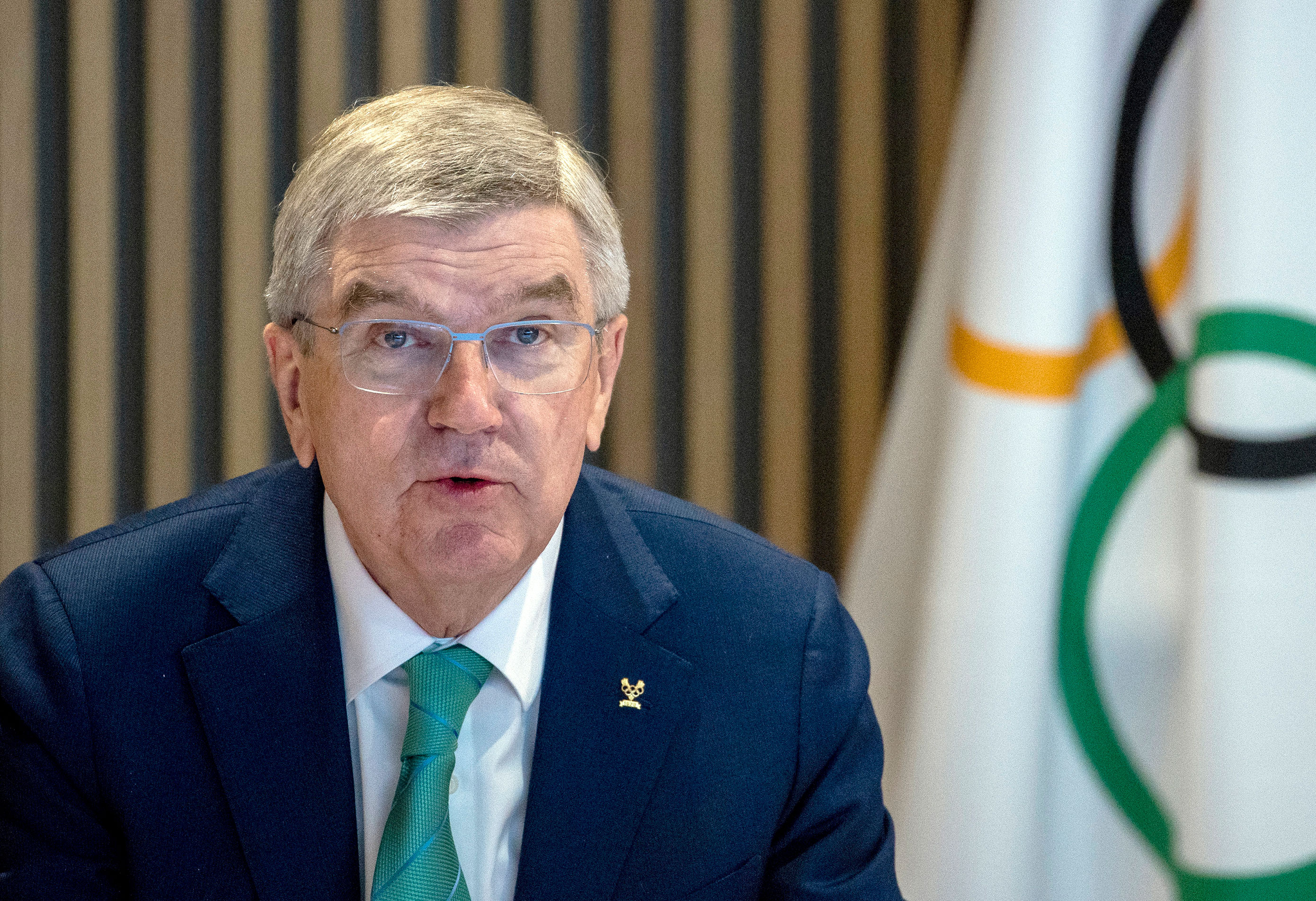
International Olympic Committee (IOC) president Thomas Bach pleaded with politicians Wednesday to “keep politics and sports apart” as he defended the committee’s plan to include Russian and Belarusian athletes at the 2024 Paris Games.
Bach made the comments at a political forum in Essen, Germany.
“If politics decides who can take part in a competition, then sport and athletes become tools of politics,” Bach said during a speech in German, which lasted over an hour.
“It is then impossible for sport to transfer its uniting powers. We must be politically neutral but not apolitical. We know well that politics rules the world. We know well that our decisions have political implications and we have to include that in our thinking,” he continued. “But we should not make the mistake of raising ourselves to referees of political disputes, because we will be crushed by these political powers.”
According to Reuters, Bach said “Ukraine wants, and this is a direct quote, ‘the total isolation of all Russians.” That line was met by applause from some in attendance.
But Bach described the request as a “dilemma” and “a completely new situation.”
“If we exclude athletes for political reasons, we face the decline of the international sporting system,” the IOC president said.
More background: In January, the IOC outlined a multi-step plan for Russian and Belarusian athletes to participate at the upcoming 2024 Summer Games in Paris and the 2026 Winter Games in Milan.
The plan would allow competitors to participate as neutral athletes, without representing their home country via flag, anthem, uniform or other identification.
The United States, Canada and most European countries have criticized the decision. Last month, the US and more than 30 other “like-minded” countries backed a proposed ban of Russian and Belarusian athletes from competing in international sports
Ukraine has not ruled out boycotting the Olympics if Russian and Belarusian athletes are allowed to compete, the country’s sports minister said in January.
In February, the IOC reiterated its condemnation of the war in Ukraine in a statement marking the invasion’s first anniversary.
Moscow condemns Finland’s NATO bid as it moves closer to joining the alliance
From CNN’s Radina Gigova and Anna Chernova
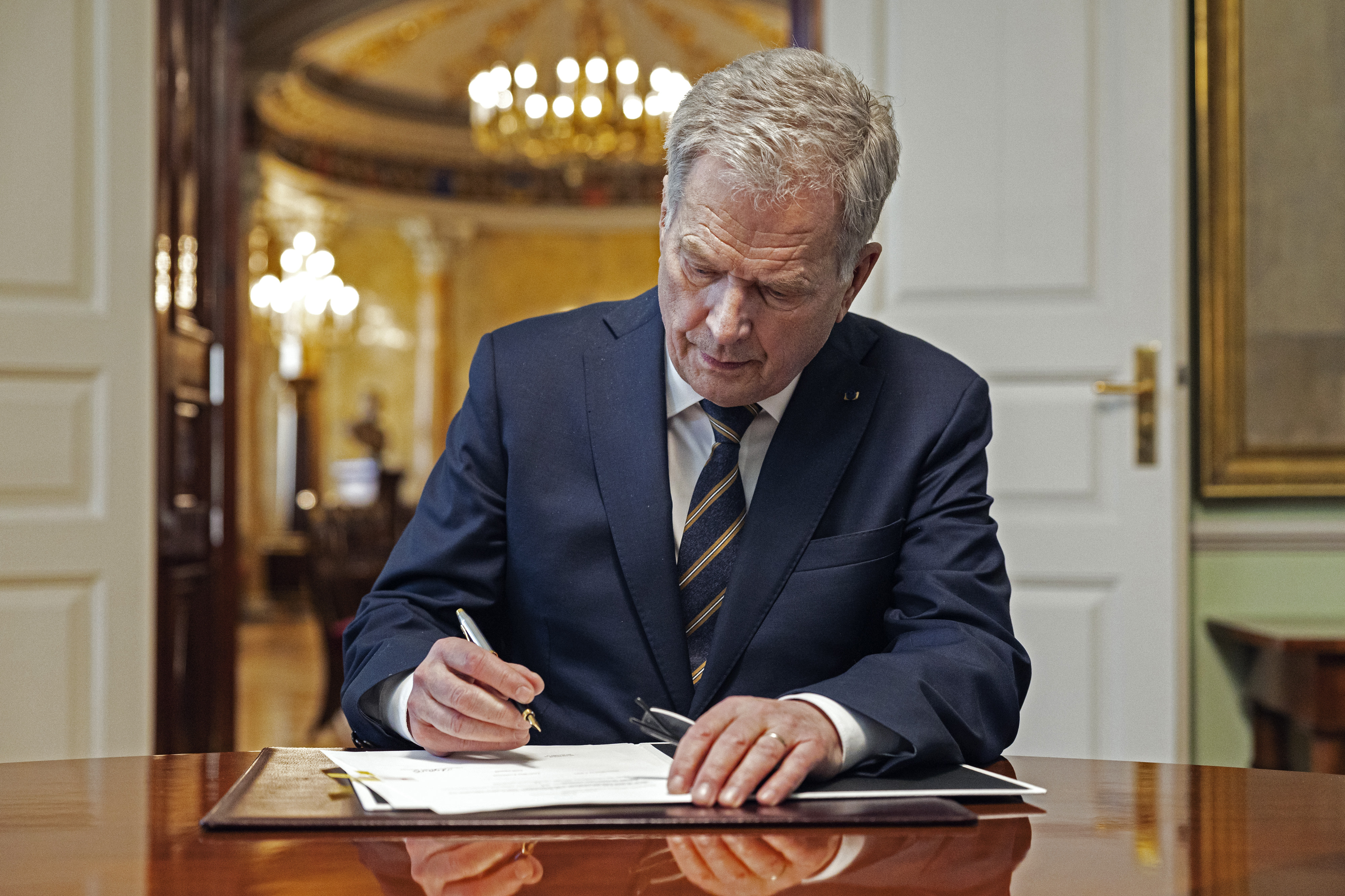
The Russian Foreign Ministry again condemned Finland’s bid to join NATO, calling it “unbalanced” and “counterproductive” in comments reported by state news agency RIA Novosti Thursday.
“As for Finland’s decision to join NATO, it can hardly be considered balanced,” Foreign Ministry spokesperson Maria Zakharova said during a briefing in Moscow. She claimed the decision was taken “under the influence of an unprecedented anti-Russian media campaign” and without proper public debate.
“We understand that the United States of America and a number of its allies are behind this political campaign,” she added, without providing evidence.
Zakharova said the move would only exacerbate the military and political situation in Europe. Russia has repeatedly asserted Helsinki’s decision will be counterproductive, and that it has already negatively impacted Russian-Finnish relations.
Some context: Finland and Sweden announced their intention to join NATO in May 2022, after Russia’s invasion of Ukraine caused the Nordic countries to abandon their long-held non-aligned status.
The move was a setback for Moscow, with the war triggering the kind of NATO enlargement that Russia invaded Ukraine to prevent.
Finland and Sweden’s applications were welcomed by almost all NATO leaders, but under the alliance’s rules, just one member state can veto a new applicant’s membership.
Finland’s bid took a major step forward when Turkey and Hungary, which had to that point been the key holdouts, agreed to start the process of ratifying Finland’s membership last week.
On Thursday, Finland’s President Sauli Niinistö signed legislation that approves the country’s bid to join NATO.
Sweden’s parliament approved its own bid to join NATO Wednesday, but the Swedish government still awaits Turkey and Hungary’s go-ahead.
CNN’s Yusuf Gezer, Amy Cassidy and Jack Guy contributed to this report.
Spain will send its first 6 modern battle tanks to Ukraine by end of next week, Defense Ministry says
From CNN’s Al Goodman in Madrid
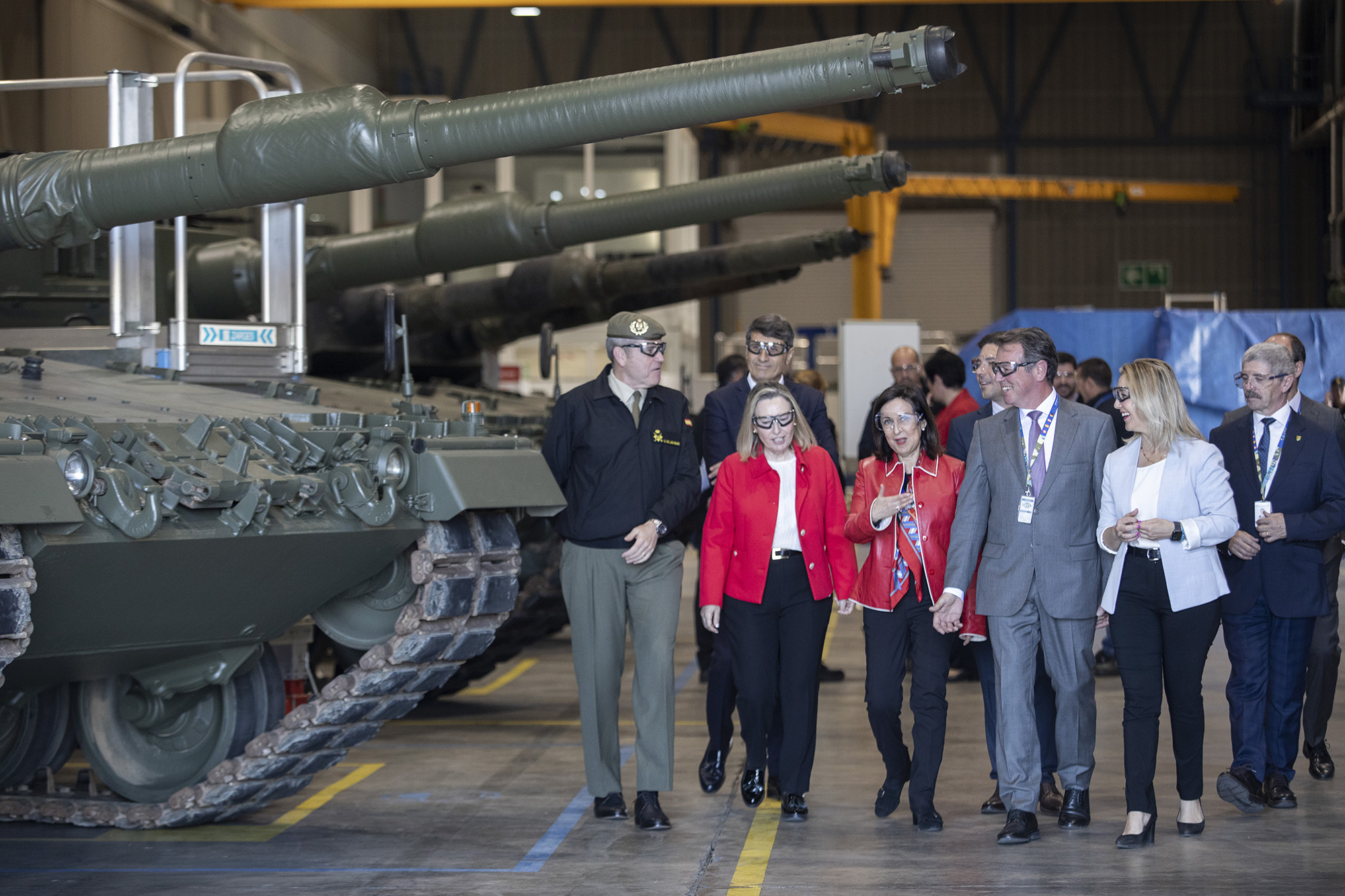
Spain is expected to send its first shipment of modern battle tanks to Ukraine by the end of next week, once officials have completed final firing tests in the field, the Spanish Defense Ministry said in a statement Thursday.
The six Leopard 2A4 tanks have been undergoing final checks at a weapons factory near Seville in southern Spain, the statement said.
Spanish Defense Minister Margarita Robles visited the factory Thursday and said four more Leopard tanks due for Ukraine will arrive there soon for inspection and testing.
The first group of Ukrainian troops to learn how to operate the Spanish tanks are wrapping up training at a military base in northern Spain, the Defense Ministry announced last week.
Some background: Robles initially told Spain’s parliament last month that the country would send six Leopard tanks to Ukraine.
A day later, Spanish Prime Minister Pedro Sánchez made a surprise visit to Kyiv on the anniversary of Russia’s invasion. He met with Ukrainian President Volodymyr Zelensky and announced Spain would bump its commitment to 10 fighting vehicles.
It will cost $411 billion to rebuild from the war in Ukraine, World Bank says
From CNN’s Florence Davey-Attlee
The estimated cost of reconstruction efforts in Ukraine after Russia’s invasion has reached $411 billion, according to an updated assessment by the World Bank.
This amounts to 2.6 times the country’s estimated GDP in 2022. It includes an estimated $135 billion of direct damage – mainly to the housing, transportation, energy, commerce and industry sectors, according to the bank. The majority of damage is concentrated in frontline eastern regions, including Donetsk, Kharkiv and Luhansk.
The updated cost estimate covers damage incurred in the one year period after Russia’s invasion of Ukraine on February 24, 2022. It marks an increase from the bank’s $349 billion estimate in June 2022.
“The amount of damage and recovery needs currently does not include data on the loss of infrastructure, housing and businesses in the occupied territories,” Ukrainian Prime Minister Denys Shmyhal said, referring to areas controlled by Russia’s troops. “When the defense forces release them, we expect that the data will be supplemented, and the Government will immediately begin restoration work in these territories.”
The reconstruction cost is a joint assessment made by Ukraine’s government, the World Bank Group, the European Commission and the United Nations.
Slovakia hands 4 MiG-29 fighter jets to Ukraine
From CNN’s Vasco Cotovio
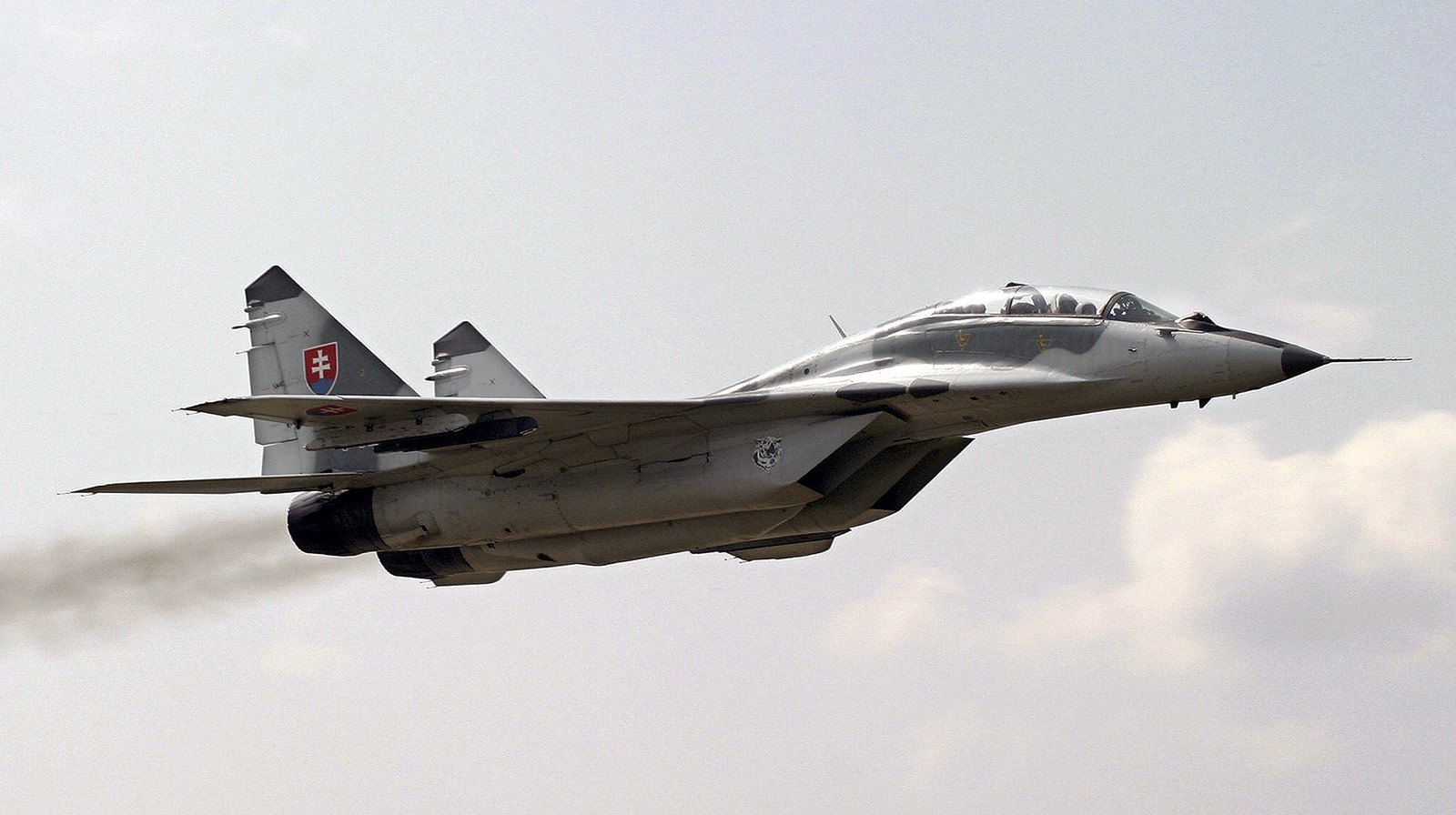
Slovakia has handed four of its Soviet-era MiG-29 fighter jets over to Ukraine, the country’s Defense Minister Jaro Nad said in a Facebook post on Thursday.
This comes days after the country pledged 13 Mig-29 fighter jets to Ukraine, along with Poland which pledged four.
On the question of a military advantage, Russia has been dismissive, claiming the gift of more Soviet-era MiGs to Ukraine will not alter the course of the conflict. Which might be why it is F-16s – and not MiGs – that are in fact at the top of Ukrainian President Volodymyr Zelensky’s wish list.
MiG-29s are analog aircraft, using older flight technology. Zelensky’s sought-after F-16s are digital. MiGs can be used for short combat missions, they can deploy weaponry and shoot down Russian aircraft with good maneuverability at short range. But F-16s can fly for longer, are more versatile, possess integrated weapons systems and have dramatically better long range and radar capability, therefore providing improved early warning.
CNN’s Bianca Nobilo contributed reporting to this post.
It’s mid-afternoon in Kyiv. Here’s what you need to know
Ukrainian President Volodymyr Zelensky has traveled to the Kherson region, where reconstruction efforts are underway after some areas were liberated from Russian control a few months ago.
Elsewhere, the death toll from a Russian drone strike on Ukraine’s capital earlier this week has risen to at least nine people.
Here are the latest headlines:
- Zelensky’s trip: Ukraine’s president is visiting the frontline region of Kherson, southern Ukraine — months after parts of it were freed from Russian occupation. “Electricity and water supply are being restored, a medical outpatient clinic is being rebuilt, and people are returning,” Zelensky said.
- Nine confirmed dead in Kyiv drone strike: At least nine people have now been confirmed dead as a result of a Russian drone attack on the Kyiv region on Tuesday night, Ukraine’s state emergency service said in a Thursday statement.
- Possible Bakhmut counteroffensive: The ongoing depletion of Russian forces fighting for Bakhmut will allow Ukraine go on the counteroffensive in the eastern city “very soon,” said Col. Gen. Oleksandr Syrskyi, commander of Ukraine’s land forces. “[Russians] are losing significant forces [in Bakhmut] and are running out of energy,” he said.
- Ukrainian prosecutor pushes for war crimes trials: Ukrainian Prosecutor General Andriy Kostin thanked the European Parliament for its support in assuring Russia is held accountable for crimes committed during its invasion. “We hope that the historic decision of the International Criminal Court (ICC) on the arrest warrant for (Russian President Vladimir) Putin will consolidate his status as a pariah for the civilized world,” Kostin said.
- Prince William meets Polish president: A meeting between Britain’s Prince William and Polish President Andrzej Duda in Warsaw focused on the ongoing conflict in Ukraine and its impact on Polish society, a spokesperson for the Prince of Wales said in a statement.
- Spanish PM to meet China’s Xi: Spanish Prime Minister Pedro Sánchez says he will discuss Russia’s war on Ukraine with Chinese leader Xi Jinping during a state visit to China next week. Sanchez said he would specifically address the issues of peace, on Kyiv’s terms, and Ukraine’s territorial integrity.
If Putin were arrested abroad after ICC warrant it would mean a “declaration of war,” Russian official says
From CNN’s Radina Gigova in London and Nadine Schmidt in Berlin
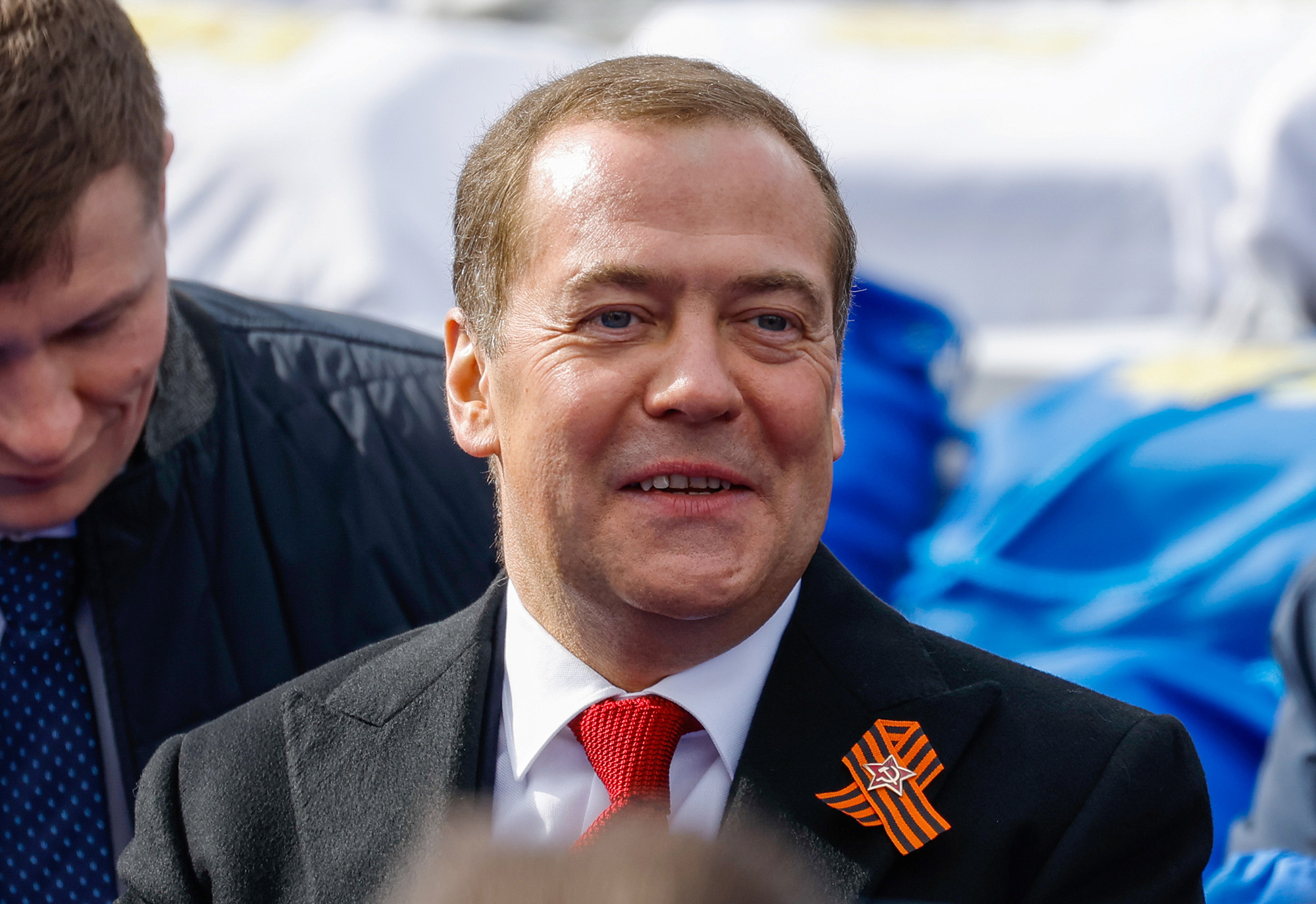
If Russian President Vladimir Putin gets arrested overseas following the International Criminal Court’s (ICC) warrant, that would mean “a declaration of war against Russia,” Russian Security Council Deputy Chairman Dmitry Medvedev said Thursday, according to state news agency TASS.
“Clearly, such a situation is never going to happen but still, let’s imagine that it has happened. The incumbent head of a nuclear country arrives in, say, Germany, and is arrested. What does it mean? A declaration of war against Russia,” Medvedev said, responding to a media question. “In such a case, all our weapons will target the Bundestag, the [German] chancellor’s office and so on.”
Responding to German Federal Minister of Justice Marco Buschmann’s remark that Berlin would have to implement the ICC decision and arrest the Russian president if he arrived in Germany, Medvedev said: “Does he even realize that it would be a casus belli, a declaration of war? “
Medvedev also reiterated that the ICC’s decision would have detrimental impact on Moscow’s relations with the West.
“Our relations with the Western world are already poor; they are perhaps at their worst ever. Even when Churchill delivered his Iron Curtain speech, our relationship was better. And all of a sudden, they make such a move against our head of state,” Medvedev said, according to TASSS.
Ukraine will be on the agenda when Spanish leader visits China
From CNN’s Al Goodman in Madrid
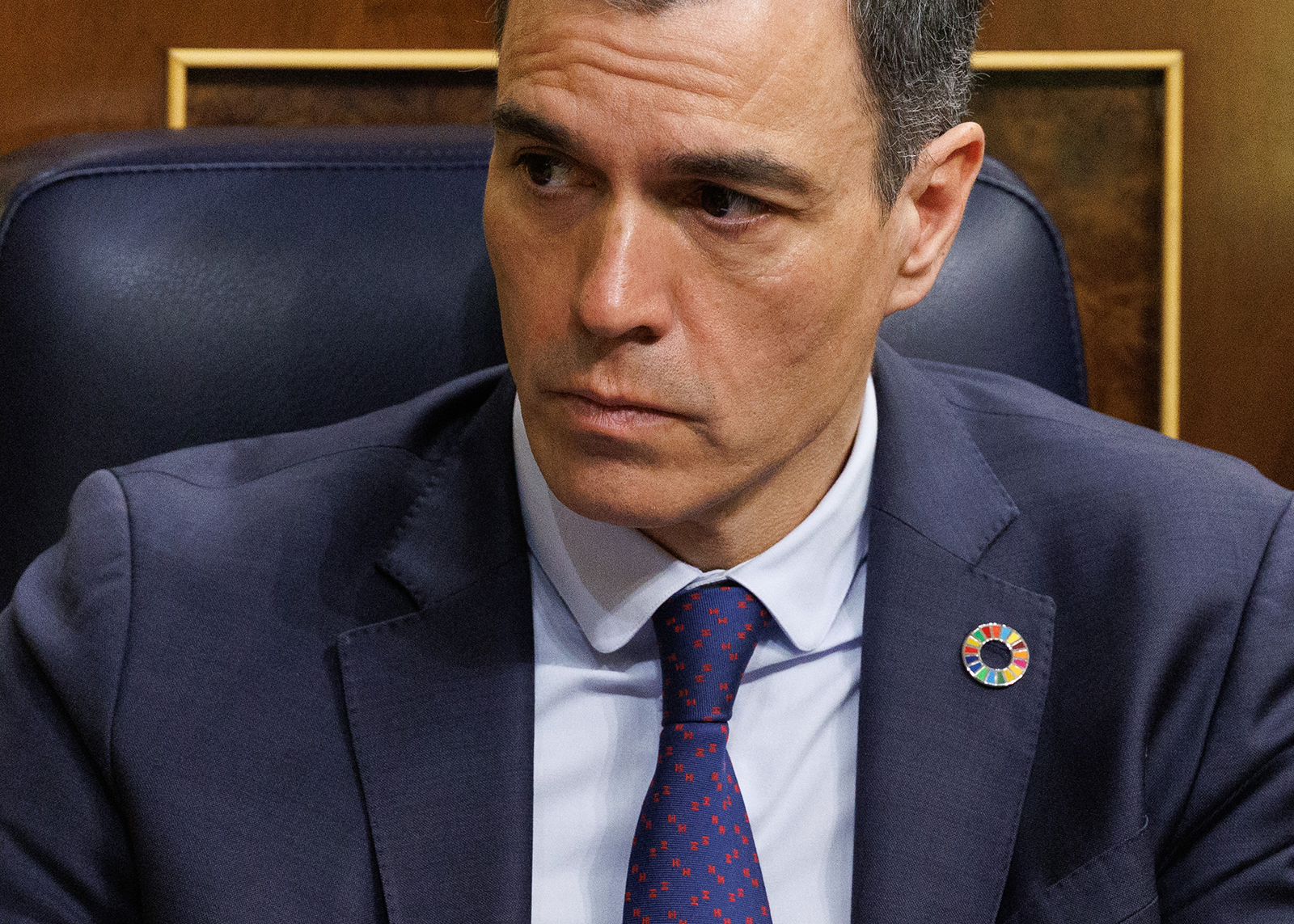
Spanish Prime Minister Pedro Sánchez says he will discuss Russia’s war on Ukraine with Chinese leader Xi Jinping during a state visit to China next week.
Sánchez said he will address three topics with Xi:
- Reinforce bilateral relations and celebrate 50 years of diplomatic relations between Madrid and Beijing.
- Explain the goals of the Spanish presidency of the European Union in the second half of 2023.
- Discuss stability and durable peace in Ukraine.
Sanchez said he would specifically address the issues of peace, on Kyiv’s terms, and Ukraine’s territorial integrity.
“That means respecting the UN human rights charter, with regards to the territorial integrity which is being violated by Russia, in this case in Ukraine,” he told reporters as he arrived for a European Council meeting in Brussels. “And logically it will be Ukrainians themselves who establish the conditions for the beginning of that peace dialogue that will logically have to occur.”
China’s Ministry of Foreign Affairs on Thursday said it has no information to provide regarding the matter.
The Spanish prime minister said he was thankful for President Xi’s invitation and referred to China as “a global actor of the first order,” adding it was important to hear Beijing’s view.
Beijing has attempted to position itself as a peace broker in the conflict despite its growing relationship with Russia. Xi departed Moscow on Wednesday after pledging to deepen ties with President Vladimir Putin during a three-day state visit. Their talks failed to achieve a breakthrough on Ukraine.
